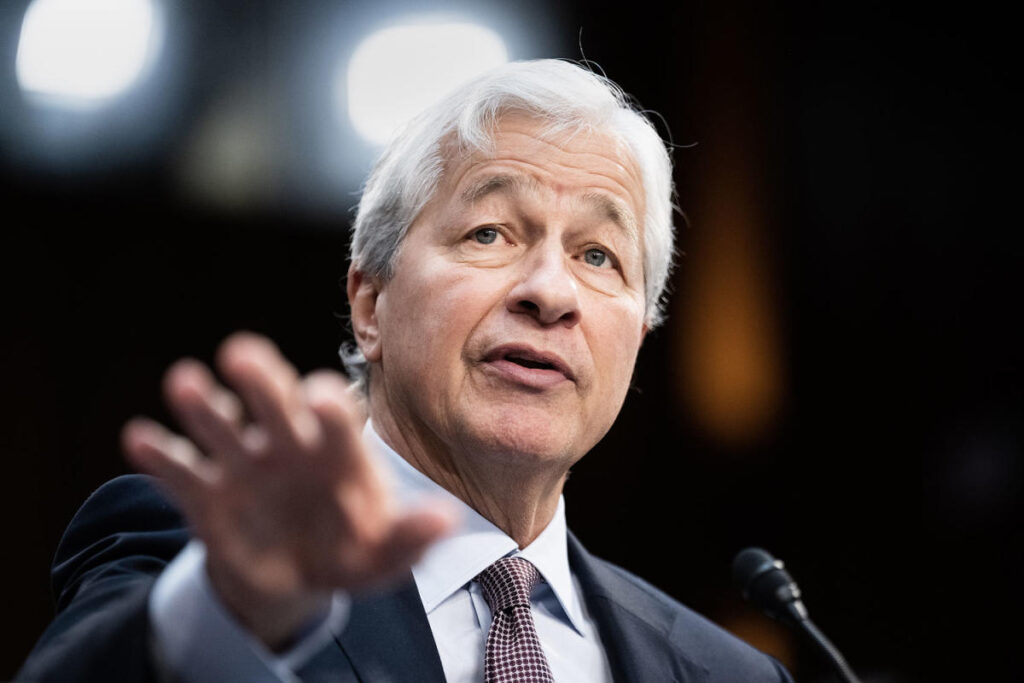Former President Donald Trump recently faced scrutiny after posting a false claim on social media that he had received an endorsement from Jamie Dimon, the CEO of JPMorgan Chase, for the 2024 presidential race. Trump shared this information on his Truth Social account, citing an unspecified news story that suggested Dimon had endorsed him. However, a spokesperson for Dimon quickly refuted the claim, stating that Dimon had not endorsed any candidate in the upcoming election. This incident highlights ongoing concerns about misinformation in political discourse, particularly through social media channels.
The endorsement claim was initially circulated by a verified account on social media before being amplified by various pro-Trump supporters, which led to widespread attention. It was observed that Trump’s post appeared around the same time that the false endorsement was first shared. Upon being questioned about the post, Trump displayed uncertainty by claiming ignorance of the situation, even after being informed that Dimon’s spokesperson denied the endorsement. Trump suggested that “somebody” must be misusing Dimon’s name, showcasing a pattern where he avoids accountability for misinformation attributed to him.
Further complicating the scenario, the post remained active on Trump’s social media platform for hours, reflecting a potential disregard for the ramifications of spreading false claims. Despite attempts by Trump’s team to distance him from the claim, the lack of immediate retraction or clarification cast doubt on the integrity of information shared by his campaign. This incident echoes previous controversies surrounding Trump’s communication strategies, wherein misleading statements have often been made without verification or follow-up.
This incident follows a similar occurrence earlier in the year when Trump falsely claimed an endorsement from pop star Taylor Swift, which prompted her to issue a public statement clarifying that she had not supported him. Swift expressed her concerns about how misinformation spreads through social platforms and the need for voters to be clear about their actual loyalties in elections. Her reaction underscores the growing anxiety among public figures about the influence of misinformation, particularly as it pertains to significant political events.
Jamie Dimon has previously articulated his political stance, emphasizing that he intends to refrain from endorsing any candidates as he focuses on broader policy discussions. In a recent interview, Dimon indicated that his goal is to contribute to policy dialogue rather than entering the political fray as an endorser. This attitude presents a stark contrast to the behavior exhibited by Trump, who frequently leverages endorsements—true or false—to bolster his political image.
In conclusion, the debacle surrounding Trump’s claim of support from Jamie Dimon underscores the ongoing challenges of misinformation in modern political campaigns. As individuals like Swift and Dimon strive to combat the spread of false narratives, the necessity for accurate information remains crucial for informed voter decision-making. Misstatements by prominent figures, especially in high-stakes contexts like presidential elections, underscore the importance of accountability and the continuous vigilance required to maintain the integrity of public discourse.

